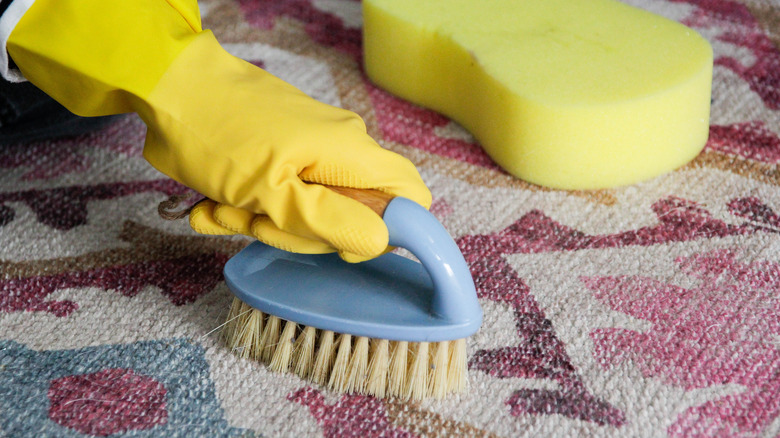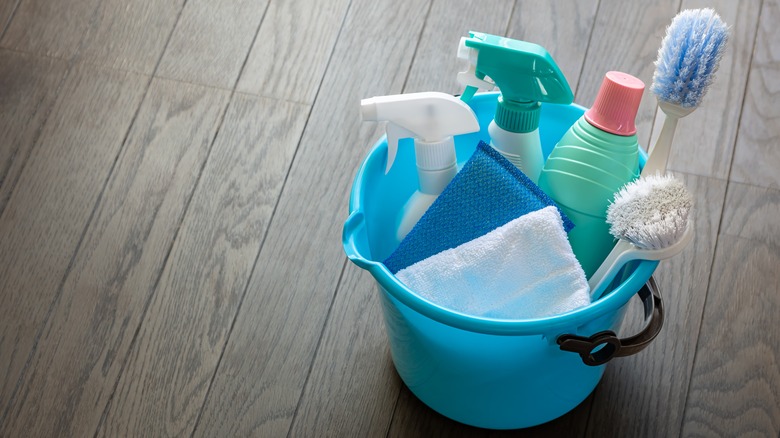Hydrogen Peroxide Vs. Enzyme Cleaners: Which One Cleans Best?
Some stains can be annoyingly stubborn. Tomato sauce, for example, is considered one of the worst. Whether it's your towel, carpet, or denim blue jeans, you'll want a cleaning agent that doesn't leave noticeable stains. Stains can be pretty frustrating, especially If you have a little one or a pet. Plus, you don't want to look lousy, and you don't want the stain to spoil the color and integrity of your fabric — because they often do. Make no mistake. Although hydrogen peroxide and enzyme cleaners do a good job, they don't work the same way and have different outcomes.
Hydrogen peroxide is an oxidizing agent, meaning it can easily give away oxygen to another molecule. In this context, the molecules that make up the stain. When oxygen meets the molecules that make up the stain, it breaks down their chemical structure, specifically their color-causing components. The effect? The stain will have no color and, to the naked eye, will appear white. Technically, white is not a color; it has no wavelength. In short, hydrogen peroxide works by hiding stains. Enzyme cleaners, on the other hand, break down organic stains by discharging biological enzymes on them.
Hydrogen peroxide and enzyme cleaners: pros and cons
Both hydrogen peroxide and enzyme cleaners do an excellent job of removing stains, even those that are stubborn and deep inside the fabric. Plus, both are eco-friendly; they don't harm the environment. However, hydrogen peroxide and enzyme cleaners come with certain pros and cons you should consider. First, enzyme cleaners, as we've stated, use biological enzymes to eliminate organic stains. Therefore, if dealing with inorganic stains, you will want to work with hydrogen peroxide — not enzyme cleaners. Organic stains are those caused by living organisms, including plants and plant extracts. Think of stuff like coffee, ketchup, or a strawberry juice stain. On the other hand, inorganic stains emanate from non-living sources. Think of oil, ink, grease, even lipstick.
Then again, enzyme cleaners use certain enzymes, including protease and amylase. The latter breaks down protein; the former starch. This is fine, but it has a downside: They are only effective on specific substrates. Hydrogen peroxide, instead, can be used widely and in many surprising ways around your home. Although, you should never use hydrogen peroxide for certain types of stains on colored fabrics without testing it in an inconspicuous spot first. Something else: Hydrogen peroxide is acidic, even if only slightly so. The catch? It may not break down acidic stains. So which one cleans best? You already know the answer: It depends on the stain you're dealing with.

